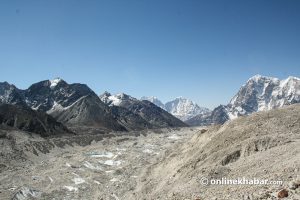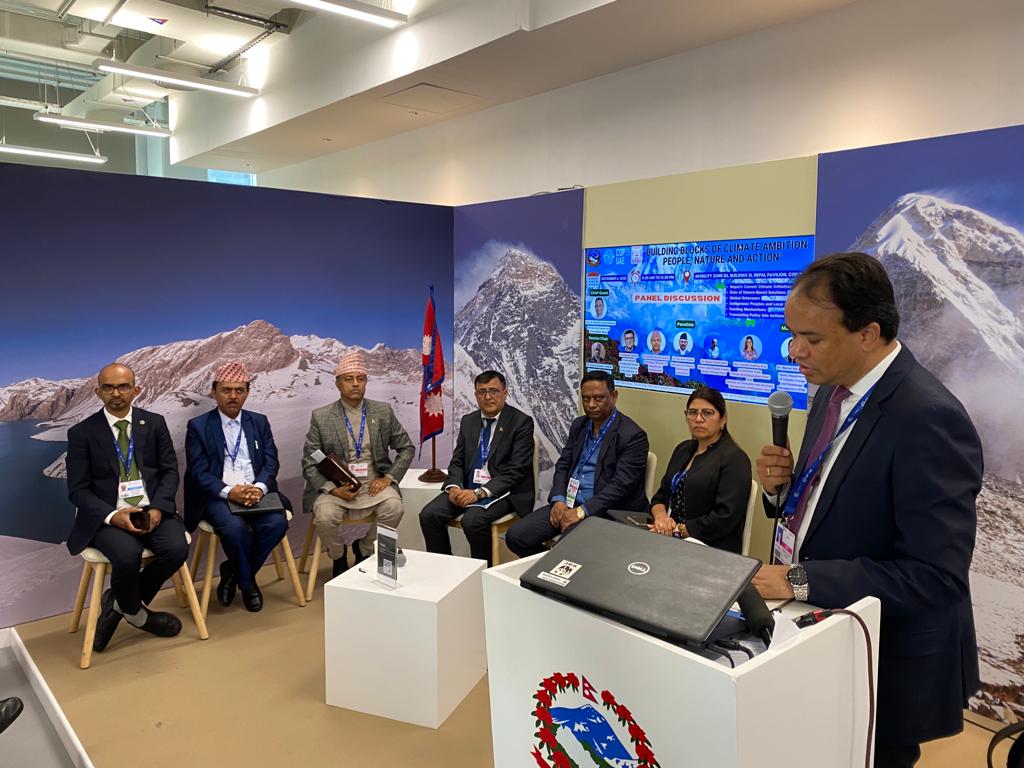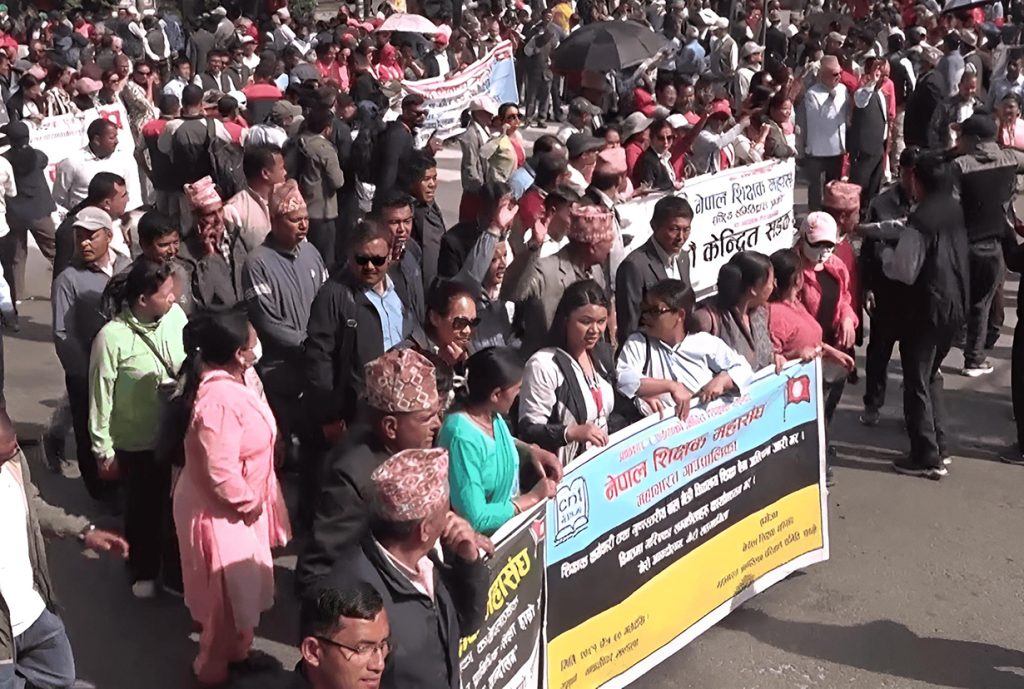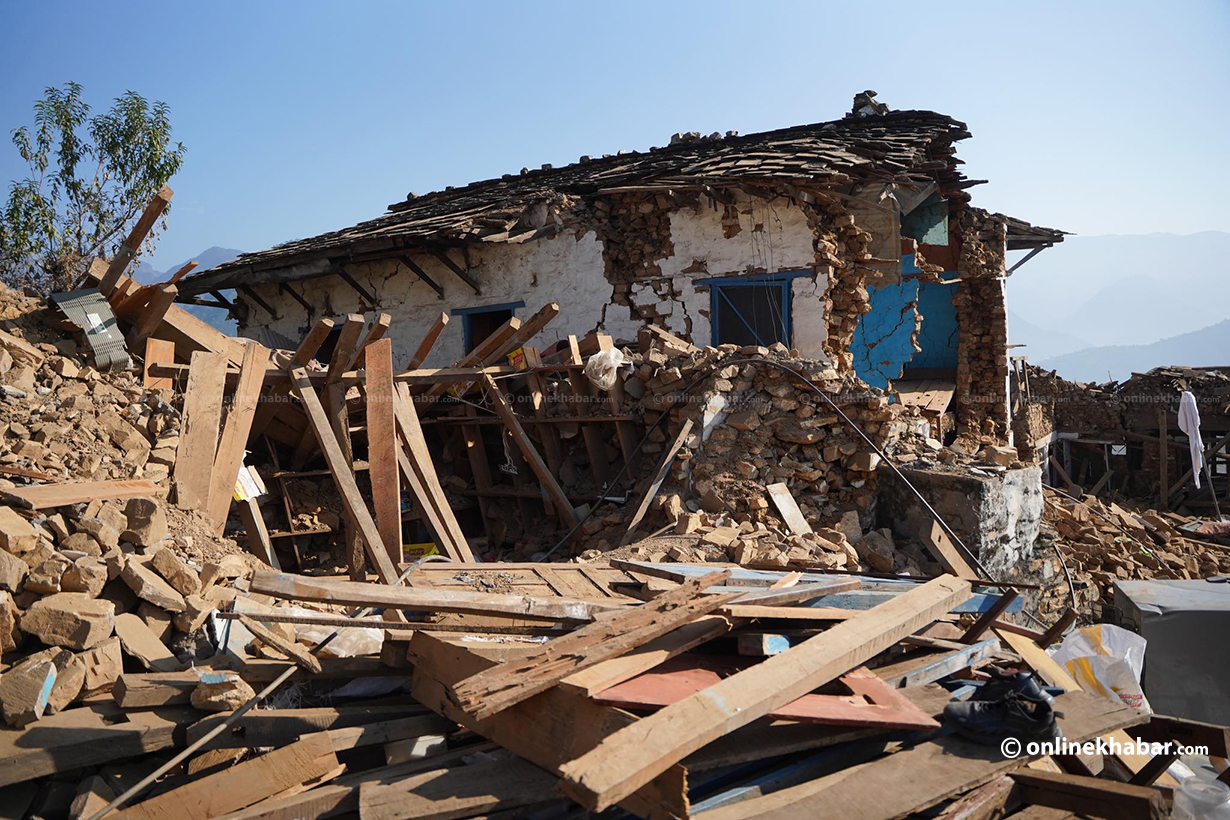
Nepal is one of the countries most vulnerable to the negative effects of climate change. As the world’s temperatures continue to rise rapidly, Nepal has seen a noticeable increase in the frequency of extreme weather events like the depletion of glaciers and noticeable changes in the monsoon patterns.
Within the context of Nepal’s heightened vulnerability to the detrimental impacts of climate change, the imperative for comprehensive climate education and heightened awareness initiatives becomes resoundingly clear. The escalating global temperatures not only underscore the pressing need but also amplify the urgency for Nepal to prioritise climate education and awareness.
This educational foundation is pivotal, equipping individuals and communities alike with the knowledge and tools required to not only adapt to the evolving climate dynamics but also to mitigate further damage. Moreover, as Nepal navigates its journey toward sustainability, it is crucial to underscore the role of community engagement and empowerment in fostering resilience and self-reliance.
Challenges are certainly present, including resource constraints and logistical hurdles, but these challenges also unveil opportunities for innovation, cooperation, and sustainable development. So it is time to understand the significance of climate education and awareness in Nepal.
The importance of climate education and awareness in Nepal

Beyond just disseminating information, Nepal’s need for climate education and awareness is crucial for the country’s resilience and long-term success. The public is instilled with a sense of stewardship and duty through climate education, which also conveys a scientific understanding of climate change.
It enables people to take responsible actions, adopt sustainable lifestyles, and actively participate in climate mitigation and adaptation initiatives. In addition, activities to raise awareness promote a shared understanding of the vulnerability of Nepal’s ecosystems and the interdependence of its populations with the environment. They therefore encourage the transition to more sustainable ways of living and earning a living.
In the face of a rapidly changing climate, Nepal finds itself at a critical juncture, where the need for climate education and awareness has never been more pronounced. These essential tools empower individuals with knowledge, skills, and values that are paramount for the nation’s resilience and long-term success in confronting the challenges posed by climate change.
Fostering climate action and resilience
- Reducing greenhouse gas emissions: Climate education equips Nepalis with the insights needed to take meaningful actions to reduce greenhouse gas emissions. Informed choices in energy consumption, transportation, and daily habits can collectively contribute to mitigating the impacts of climate change.
- Building climate resilience: With a solid foundation in climate science and adaptive strategies, communities can better prepare for and respond to the increasing frequency and intensity of extreme weather events, droughts, and floods.
Nurturing sustainable development
- Promoting a green economy: Climate education lays the groundwork for a sustainable future by fostering an understanding of green technologies, circular economies, and eco-friendly practices that can drive economic growth while minimizing environmental impact.
- Protecting biodiversity: Nepal’s unique ecosystems and rich biodiversity are irreplaceable treasures. Climate education instils an appreciation for these natural wonders and encourages stewardship, reducing the threats they face from climate-related changes.
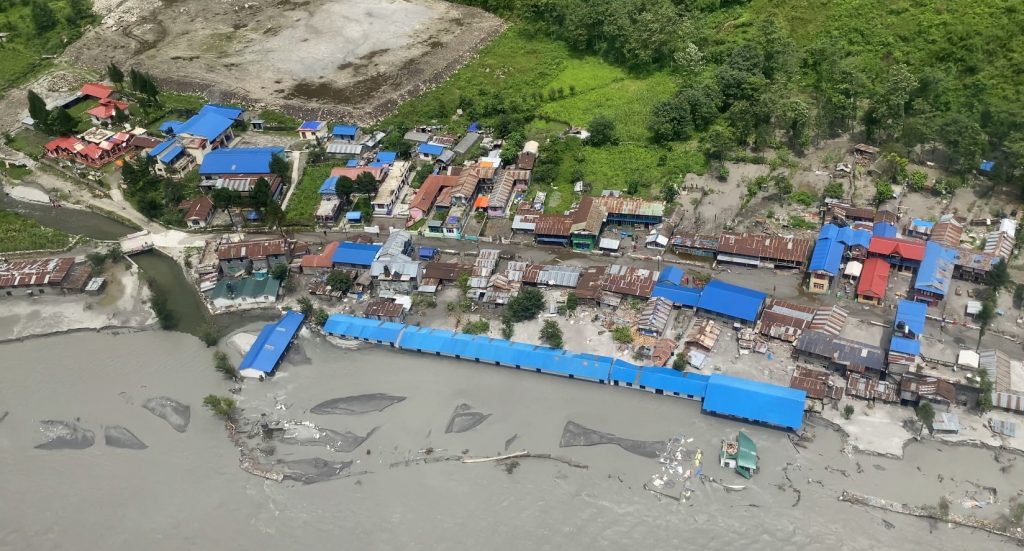
Advocating social justice
- Enhancing equity: Climate education promotes social justice by ensuring that all segments of the population, regardless of age, gender, or socioeconomic status, have access to the knowledge and tools required to navigate the challenges posed by climate change.
Cultivating a culture of climate action
- Building a sense of community: Climate education and awareness initiatives create a sense of community and solidarity around climate action, fostering collaboration and collective responsibility.
- Inspiring individual action: People inspired and motivated by climate education are more likely to make sustainable changes in their personal lives, further contributing to Nepal’s resilience.
- Fostering critical thinking: Climate education encourages critical thinking and problem-solving skills, preparing individuals to tackle complex climate-related challenges.
- Empowering informed citizens: A well-informed citizenry is essential for effective climate policy and action. Climate education helps build a more informed and engaged populace.
As the importance of climate education and awareness becomes increasingly evident, it is imperative that these topics are integrated into all levels of education, from primary schools to universities, ensuring that future generations are well-prepared to address climate challenges. Furthermore, accessibility should be a cornerstone of these efforts, extending climate education to all Nepalis, regardless of their circumstances.
Promoting climate education and awareness in Nepal can be achieved through several specific strategies:
- Curriculum development: Develop and implement climate change curricula for all levels of education to ensure a comprehensive understanding of climate science and solutions.
- Teacher training: Provide training and resources for educators to effectively teach climate change concepts in an engaging and impactful manner.
- Community-led initiatives: Support schools and communities in developing their own climate education programs tailored to their unique circumstances.
- Mass awareness campaigns: Utilise mass media campaigns, public events, and social media to raise awareness of climate change and its impacts.
- Promote sustainable lifestyles: Encourage climate-friendly lifestyles and behaviours through educational programs and campaigns.
- Youth engagement: Foster youth-led climate activism and initiatives, harnessing the energy and innovation of the younger generation.
By investing in climate education and awareness, Nepal not only equips its citizens with the tools needed to address climate challenges but also paves the way for a more resilient and sustainable future for both its people and the planet. In this endeavour, Nepal stands poised to become a beacon of climate resilience and a model for effective climate education and awareness worldwide.






